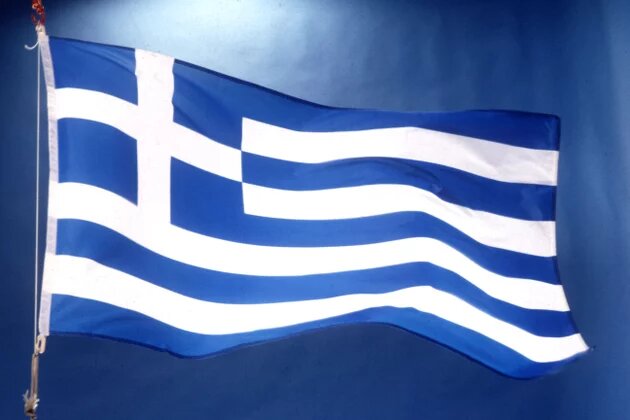

Gender-political situation in Greece
Legal situation
-
Legislated gender quota with a focus on politics and business
-
Other laws and legislative regulations and government programmes
Protagonists
Academia
Brief description and evaluation
Greece is going through an unprecedented economic and social crisis that impacts on both the private and the public life of men and women. In this context, gender equality objectives tend to be marginalised in public and policy debates. The progress made during recent decades in women’s labour market participation is being undermined because of the transformations that are currently taking place.
The absence of gender equality objectives in the reforms and the economic adjustment programmes has led to the deregulation of the labour market, which has had a very negative impact on the implementation of gender equality objectives.
Gender wage gaps and discrimination against female employees is widespread in the private sector, including arbitrary dismissals and the refusal of employers to fulfil their obligations, as well as forced acceptance of changes in employment status before or after return from maternity and parental leave.
[Source: NELLI KAMBOURI (2013). Gender equality in the Greek labour market: The gaps narrow, inequalities persist. Friedrich-Ebert-Stiftung, 13f. (in English)]
All gains in the field of gender equality since the 1980s have been put at serious risk by the economic and political developments of the last few years. Whilst the Greek autonomous feminist movement has been responsible for the generation of ideas and mobilisations which led to positive changes, most of this has been absorbed or mutated into women’s groups that tend to be attached to political parties and trade unions.
Feminism in Greece has never had a positive image among the wider public and women-friendly policies are something that organised feminists are not very much connected with.
On the institutional level, the crisis has meant restructuring and reduced service provision. Indicative of these trends is the recent restructuring of the General Secretariat of Gender Equality in March 2013 (25 units were reduced to 8, 3 out of the 5 directorates were closed down, 19 departments were reduced to 6 and the post of the Director General was abolished, all in an era in which Greek women could benefit the most by the Secretariat.
These state practices have been counteracted to some extent by informal networks and civil society, which had traditionally been entrenched in state mechanisms or strong professional associations. In this respect, it seems that the crisis has strengthened the Greek civil society and social cohesion.
While the legal framework provides for part-time employment arrangements as a vehicle for helping enterprises cope with financial difficulties and keeping their labour force, it seems that this is increasingly used against labour legislation that protects women and promotes equal treatment between men and women.
Austerity policies have systematically targeted public sector employment (i.e. affecting predominantly women employment) and have curtailed benefits (again generating work/family balance challenges predominantly for women as mothers and carers). The state does not seem to be able to safeguard gender equality in the current climate; on the contrary it pursues policies that constitute a backlash to gender equality. Moreover, civil society and feminist organisations are growing from strength to strength and aim at preserving what can be rescued; in collaboration with their counterparts in other debt-stricken EU countries they rise to one of the biggest challenges in one of the most important historic moments in contemporary Greek history.
[Source: FEMM Committee (2013). The Policy on Gender Equality in Greece. p. 17 (In English)]
Austerity measures contributed to a massive loss of employment in the private and public sectors, unprecedented deregulation of labour law and increase in atypical employment. Women’s complaints [to the Ombudsperson] increase as they are more exposed to adverse working conditions, particularly during pregnancy and upon return from maternity leave. They are under greater pressure to accept flexible forms of employment which do not ensure adequate living standards and do not allow them to meet their family obligations. In particular, downgrading and imposed time or rotation work are spreading fast. The ILO Committee also strongly deplored this situation. However, the reluctance of women to bring cases to court is also growing, mainly due to: lack of evidence; fear of victimisation or being labelled as troublemakers; length of proceedings; and high litigation costs.
The closing down on a massive scale of small and medium-sized enterprises was and is problematic as it is an important source of female and youth employment. Manufacturing and retail trades, where female participation is high, are particularly badly hit. As demand is falling and taxes are soaring, one in four shops in the country has closed down (in Athens, one in three).
Women and families are the main victims of employment deregulation, social budget cuts and social security reform. Bargaining for wages and other working conditions is increasingly laid on individual workers’ shoulders. However, the negotiating power of women (in particular pregnant women, mothers and migrants) is increasingly weak, the more so as they are over-represented in low paid and precarious jobs and sectors heavily hit by the crisis. As a result, a safety net protecting from poverty and social exclusion was removed, while direct, indirect and multiple discrimination against women are growing.
Moreover, the downgrading of sectoral agreements and the suspension of their extension are particularly affecting the banking and tourist sectors, where female employment is high. As national general collective agreements and sectoral agreements have greatly contributed to maternity and parental protection by extending the standards and scope of the legislation, protection from poverty and social exclusion will diminish.
However, the austerity measures are having an adverse impact on services and benefits for children, the elderly, the sick and the handicapped. Thus, caring lies more heavily on families, particularly women, whose growing material deprivation makes it often a mission impossible, while gender stereotypes are perpetuated.
The inferior position of women in the labour market and the widening gender pay gap are resulting in lower pensions for them and a gender pension gap. Employment deregulation and the neutralisation of collective agreements also reflect on pensions. The situation of women is exacerbated as pension cuts also affect low pensions, e.g. those under EUR 400. Moreover, the increase in length of service requirements and minimum contributory periods for retirement and the calculation of old age pensions on the basis of the earnings of the entire working life introduced by the pension reform are increasing the probability of women being totally deprived of an old age pension. This is in particular due to shorter and irregular careers on account of family obligations and flexible and precarious forms of employment, which are the privilegium odiosum of a significant number of women
[Source: European Commission (2012) (publ.). European Gender Equality Law Review, No. 2/2012. p. 83f. (in English)]
The current (2015) government is primarily comprised of male appointees. More information on this subject can be found here.
Legal situation
Anti-discrimination legislation
Greece is a Parliamentary Republic based on a written Constitution. With regard to equal treatment and non-discrimination, the Constitution guarantees a general right for equality and equal treatment for everybody, but it makes no specific reference to grounds of discrimination save gender and (partly) disability. In greek civil society the principle of anti-discrimination and tolerance of difference is not advanced, although there are many legal provisions establishing human rights, as well as anti-discrimination groups and NGOs, but mostly without much influence in the public debate. The social partners in Greece show very little interest in anti-discrimination issues. NGOs are mostly limited to gender, ethnic/religious and disability non-discrimination.
In Greek Law, there is explicit anti-discrimination legislation. Law no. 3304/2005 on the Application of the principle of equal treatment regardless of racial or ethnic origin, religious or other beliefs, disability, age or sexual orientation implements the Directives 2000/43/EC and 2000/78/EC, therefore covering all five grounds of the aforementioned Directives.
Article 25 of Greek Constitution is immensely important, because it clearly states that private employers also must respect the constitutional rights of their employees (e.g. the rights of equality and non-discrimination).
The Labour Law consists of numerous statutes, apart from the explicit anti-discrimination Law no. 3304/2005, which seek to combat discrimination in employment, mainly on the grounds of sex and racial or ethnic origin. For example, Law no. 1414/1984 on the Implementation of the principle of sex equality in employment relations restricts discrimination, though it applies only to persons who work in the private sector. There are also statutes which outline a protective framework within which employers are obliged to abide by the protective provisions and eliminate discriminatory practices, such as dismissal of a pregnant woman or related to the race or ethnic origin of the employee.
Greece has ratified all the major human rights treaties (Covenant of Civil and Political Rights, Covenant of Economic Social and Cultural Rights, Convention on the Elimination of Racial Discrimination, Convention on the Elimination of Discrimination Against Women, Convention on the Rights of Child, European Convention of Human Rights, International Labour Office Convention No. 111 on Discrimination).
[Source: Athanasios Theodoridis (2014). Executive Summary Country Report Greece 2013 on measures to combat discrimination. (In English)]
Legislated gender quota with a focus on politics and business
At the sub-national level a law regulating quota for female candidates exists. Article 116(2) of the Greek constitution (Law 2839/2000) requires the participation of an equal percentage of male and female candidates on electoral lists for local and regional government. The law does not include a quota for female candidates standing for the national parliament.
The political party “Panellenio Sosialistiko Kimena” (social democratic) has a 40% minimum quota on party lists (Socialist International Women).
Women account for 23% of the seats in the current (2015) parliament. A brief summary of this and on the legal framework can be found at: http://www.quotaproject.org/uid/countryview.cfm?CountryCode=GR (in English)
An interesting, though rather compact outline of the women politicians representing various parties over the past few decades can be found at: http://www.theplaka.com/today/polwomen.htm
Other laws and legislative regulations and government programmes
Gender mainstreaming in public administration at all levels has been a priority for Greece. Through the National Centre on Public Administration and Local Administration, a number of proects have been implemented throughout the country towards gender-responsive procedures. In addition, the General Secretariat for Gender Equality (GSGE) has been actively participating in the preparation of the National Strategic Development Plan (2007–2013) (NSDP).
In 2010, the General Secretariat for Gender Equality drafted the National Programme for Substantive Gender Equality 2010–2013. The main strategic objectives of the programme were: the protection of human rights of women, with an emphasis on developing activities for groups of women who suffer multiple discrimination; the prevention and combating of the phenomenon of violence against women in family/private life, at work and in society as a whole; the support of women’s employment and economic autonomy; the promotion of women in decision-making; combating gender stereotypes. The programme is divided into three pillars, including actions for: improving, strengthening and enforcing Greek legislation; developing of specific policies for gender equality, and integrating of the gender equality perspective into public policies (gender mainstreaming).
The National Programme on Preventing and Combating Violence against Women 2009–2013 addresses all forms of gender-based violence. The General Secretariat for Gender Equality of the Ministry of Interior has established an ‘Integrated Action Plan in favour of women and combating of violence at national and local level’, which contains horizontal and vertical actions. The plan falls under Priority Axis III, ‘Strengthening gender equality policies across the breadth of public administration’, of the Operational Programme, ‘Administrative Reform 2007–2013’. A Standing Committee has elaborated a Draft Law on combating gender-based violence against women, and in parallel Greece has participated in the ad hoc Committee (CAHVIO) of the Council of Europe, which has processed the Convention on the Elimination of Violence Against Women and Domestic Violence, designed to eradicate all types of violence that are traditionally suffered by women. On 11 May 2011, Greece was among the first 13 countries that signed in the Istanbul Convention.
In 2010, Social Policy and Gender Equality Units were established in the municipalities. This required, for the first time, that Greek municipalities develop gender equality policies. In addition to these units, municipalities were also given the option of developing Municipal Gender Equality Committees. In 2011, Greece implemented a Guide for Gender Equality Policies as a tool/guide for gender mainstreaming in all the operational programmes (specialisation, implementation, monitoring, auditing and assessment).
In 2013, the project on the development of a new Monitoring Mechanism for the Implementation of Gender Equality Policies was launched by the General Secretariat for Gender Equality. It will operate as the monitoring system of policies of all agencies of the government and local authorities and regions, and will also have a rating system of policy results regarding gender (gender impact assessment).
[Source: European Institut for Gender Equality – EIGE (2013). „Gender Equality Index: Country Profiles.” p. 51 (In English)]
Protagonists
NGOs: political parties, civil society organisations
Coordination of Greek Women's NGOs for the European Women’s Lobby (EWL, English):
Goals:
- To promote equality in all areas of national and European policy by strengthening the recognition of women’s rights as human rights
- To combat human trafficking, poverty, unemployment and all forms of discrimination based on gender, religion and orientation
- Intensive support of women and girls with greater than average problems, for example, elderly women, disabled women, migrant women
- To disseminate information and raise awareness on the gender equality guidelines of the new European constitutional treaty
Contact:
Coordination of Greek Women's NGOs
Ms Efthymia Ioannidou
Anagnostopoulou St. 36
GR - 106 73 Athens
Tel.: +30 210 362 8574
Fax: +30 210 364 3696
Email: ioanidou.e.g@dsa.gr
Mediterranean Institute of Gender Studies (MIGS) (in English)
The Mediterranean Institute of Gender Studies (MIGS) (Reg. no. 234) is a non-profit organisation which promotes and contributes to projects of social, political, and economic themes relating to gender with an emphasis on the Mediterranean region. The Institute recognises the multilayered levels of discrimination against women and accepts that this discrimination takes different forms. It is committed to the elimination of this discrimination using a combination of research, advocacy and lobbying, as well as trainings, conferences, and other activities.
Contact
Mediterranean Institute of Gender Studies (MIGS)
46 Makedonitissas Avenue,
Box 24005, Nicosia 1703,
Cyprus
Tel.: + 357 22 842034/35/36/37
Fax: + 357 22 842050
E-Mail: info@medinstgenderstudies.org
Facebook: https://www.facebook.com/medinstgenderstudies
Marangopoulos Foundation for Human Rights (MFHR, English):
Greek foundation founded in 1977. Its basic aims are the research, study, defence, protection and promotion of the generally recognized fundamental human rights and freedoms, including those of women. The foundation organises conferences, seminars etc., awards grants and networks with numerous other national and international NGOs.
Contact:
Marangopoulos Foundation for Human Rights (MFHR)
1, Lycavittou Street, Athens 106 72
Tel.: +30 210 3637455 - 210 3613527
Fax: +30 210 3622454
Email: info@mfhr.gr
National Council of Greek Women (NCGW, English and Greek):
The National Council of Greek Women (NCGW), an NGO, is a member of the International Council of Women (ICW-CIF) and a founding member of the European Center of the International Council of Women (ECICW-CECIF); it is also a member of the European Women's Lobby (EWL-LEF) and the Association Feminine de l' Europe Meridionale (AFEM). Founded in 1908 as the first federation of women's organizations, the NCGW now consists of 45 women's organizations in Greece and Cyprus. But the NGO also has individual members. Its main objectives are the promotion of the interests and status of women in all sectors of life (family, society, community and state), as well as the protection of human rights in general and the rights of women and children in particular.
Contact:
Voulis 38, 10557 Athens
Tel.: +30.210.3232418
Fax: +30.210.32 27609
Email: ese_ncgw@ncgw.org
The “Feminist Net” (Greek):
‘Feminist Net’ is an internet-based communication platform. It has its roots in the ‘Network to combat male violence against women’. The platform brings together Greek and foreign feminist organisations, groups, networks, autonomous feminists, human rights organisations and individuals interested in women’s rights issues. The Net aims to create solidarity between women, to combat violence against women, further sexual liberation and strengthen the rights of lesbian women.
Contact:
Email: feministnet@yahoo.gr
Email: feminist.net@pathfinder.gr
(Unfortunately, the information posted on the website is not very up to date)
Winpeace (Women’s initiative for peace, English):
The Turkish-Greek network Winpeace exists since 1997. Its focus lies on peace work by women from both countries. There are projects such as youth camps, agro tourism, cooperation between business women, films and cuisine (they have a contact form on their website).
General Secretariat for Gender Equality (English):
The General Secretariat for Gender Equality (G.S.G.E.) within the Ministry of the Interior, Public Administration and Decentralisation (equivalent to the Home Office), is the governmental agency tasked with planning, implementing, and monitoring the implementation of policies on equality between women and men in all sectors. Its main working areas are:
- Promoting women’s access to employment and combating inequalities on the labour market;
- Preventing and combating violence against women;
- Combating stereotypical concepts of gender roles through education;
- Strengthening the participation of women in decision-making committees.
The G.S.G.E. has committed itself to bringing its own institutional structures in line with European guidelines.
Contact:
8 Dragatsaniou str., 105 59 Athens, Greece
Tel.: (+30) 210 3315291 – 5
Email: info@isotita.gr
The Greek Ombudsman (in English)
The Greek Ombudsman mediates between public administration and citizens in order to help citizens in exercising their rights effectively. Additionally, the Greek Ombudsman’s mission is:to safeguard and promote children's rights
- to promote equal treatment and fight discrimination in the public sector based on race, ethnicity, religious or other conviction, disablity, age or sexual orientation
- to monitor and promote the application of equal opportunities and equal treatmnent of men and women:
- in matters of employment both in the public and the private sector
- in matters of access of men and women to goods an services of the public sector
As a mediator, the Greek Ombudsman makes recommendations and proposals to the public administration. The Ombudsman does not impose sanctions or annul illegal actions by the public administration.
Complaints are submitted by anyone, regardless of nationality, who has a problem with a Greek public service, anywhere in Greece or abroad. The Greek Ombudsman's services are also available to legal entities or associations of individuals.
Before submitting a complaint to the Greek Ombudsman, the complainant should first come into contact with the public service involved with his or her case. Only if the problem is not resolved can a complaint be submitted.
[Source: http://www.synigoros.gr/?i=stp.en.rolemission]
Contact
The Greek Ombudsman
17 Halkokondyli St.
104 32 Αthens
Tel.: (+30) 213 1306 600
Fax: (+30) 213 1306 800
Facebook: https://www.facebook.com/Synigoros
National Commission for Human Rights (NCHR, English):
The NCHR is a statutory National Human Rights Institution having a consultative status with the Greek State on issues pertaining to human rights protection and promotion. Its fields of interest are gender equality and discrimination in general. The NHCR submits recommendations on the implementation of gender equality and assesses government measures.
Contact:
Neofytou Vamva 6, 106 74 Athens
Tel.: +30 210 7233221-2, 210 7233216
Fax: +30 210 7233217
Email: info@nchr.gr
Feministacttalk (English):
A Greek feminist group, open to men and women interested in feminist theory and feminist action.
These are further women’s NGOs about whom information is only available in Greek (Source):
Academia
Research Centre for Gender Equality (KETHI, only in Greek):
The Research Centre for Gender Equality (KETHI), is a Legal Entity under Private Law, founded in 1994. It is supervised and funded by the General Secretariat for Gender Equality of the Ministry of the Interior. The basic aims of KETHI's activities have a dual focus: to conduct social research on gender equality issues and to improve women's status and enable their advancement in all areas of political, economic and social life, within the framework of the policies defined by the General Secretariat for Gender Equality.
[Quelle: http://eige.europa.eu/content/research-centre-for-gender-equality-kethi]
Contact
Tel.: +30 210 38 98 000
Fax: +30 2103898079
E-mail: kethi@kethi.gr
Centre for Gender Studies at Panteion University (in English)
The Centre of Gender Studies is a research laboratory of the Department of Social Policy at Panteion University, established by (FEK)Gov. 926/17.7.2006 to cover teaching and research needs in the fields of gender in social policy and policy analysis of gender equality at the international, European, national and local level. The Centre is an evolution of the Laboratory that was created under the interdepartmental programme EPEAEK II “Gender and Equality Studies in Political and Social Sciences” and operated during the period 2003-2008. The Centre is currently directed by Maria Karamessini, Professor in the Department of Social Policy.
The Centre aims at:
- Covering the undergraduate and postgraduate teaching and research needs of the Department, as well as the needs of other academic units of the Panteion University of Political and Social Sciences, in subjects that are related to those of the Centre.
- Collaborating with other Greek or foreign research centres and academic institutions, as long as their scientific goals coincide, are compatible and complement those of the Centre.
- Organizing scientific lectures, meetings, seminars, symposiums, conferences and other scientific events, as well as issuing publications etc.
The Centre has been the leader and coordinating institute of two European research projects: Gender, Migration and Intercultural Interactions in the Mediterranean and South East Europe: An Interdisciplinary Perspective (Ge.M.IC.) and Transnational Digital Networks, Migration and Gender (MIG@NET) during the period 2008-2013.
Contact
Centre for Gender Studies at Panteion University
136 Syggrou Ave., 17671 Athens
Tel.: 0030 210 9201516
Fax: 0030 210 9201517
E-Mail: genderpanteion@gmail.com
"Gender in Social Sciences" at the University of Crete (in English)
Aims of the Program: In light of the development of Gender Studies and Equality at the University level, the program "Gender in Social Sciences" was established in 2003 and attempts to enrich undergraduate education through the introduction of the gender perspective in teaching and research. It is jointly carried out by three departments (Sociology, History and Archaeology, and Philosophy and Social Studies) and financed by the European Community and the Greek Ministry of Education (Operational Program for Education and Initial Vocational Training - EPEAEK).
The aims of the program include the following: the analysis of gender identity and gender construction, the analysis of causes (social, political, economic and cultural) of the division of gender, inclusion of gender at the center of contemporary approaches of the social sciences.
In order to achieve its aims the program was constructed upon four activities: Courses on gender, Gender research and education laboratory, Continuous Staff Seminar, Scientific meetings and activities on gender.
Contact
Gender in Social sciences
EPEAEK Undergraduate program
Department of Sociology
School of Social Sciences
University of Crete
Gallos University Campus
74100 RETHYMNO
Tel.: +(30) 28310 77487
E-Mail: papageo@social.soc.uoc.gr
Availability of sources
Somewhat average to poor internet sources with regard to state gender actors and NGOs. Some websites in English, but not always fully translated; countless websites out of date or no longer found. The PDFs (especially those of the European Union) used in this profile are recommended for a more informed overview.
Citation of relevant sources
Sources have been cited in their respective context.
further articles about homosexuality in Greece:
In Greece, It's Still Don't Ask, Don't Tell. Maria Paravantes, 11/2013
Could Syriza bring same-sex marriage to Greece? Nick Duffy, 01/2015
This study was conducted by Tanja Berger und Pamela Dorsch and comissioned by the Gunda Werner Institute of the Heinrich Böll Foundation in 2010. Last updated late 2014/early 2015.
All images, except marked otherwise Public Domain CC0

